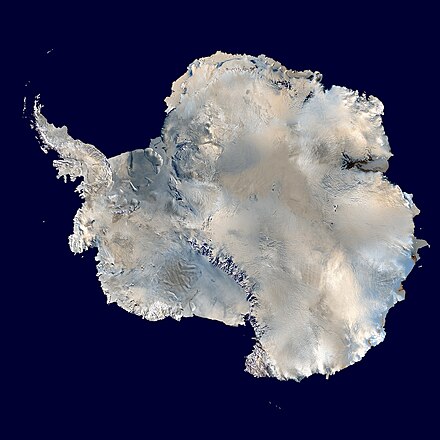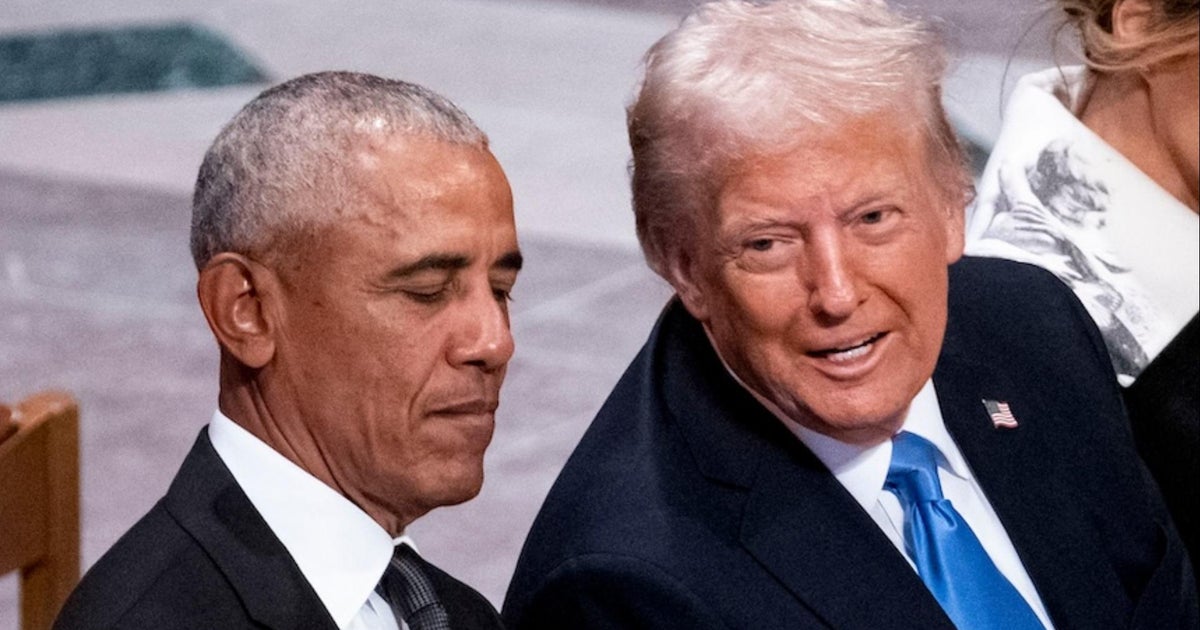
The Frozen Frontier in Flux: 5 Ways Trump’s Policies Could Reshape Antarctic Treaties
Antarctica. The name conjures images of vast, icy landscapes, pristine wilderness, and a continent dedicated to peace and science. For decades, the Antarctic Treaty System (ATS) has been the bedrock of international cooperation in this unique environment, ensuring it remains a continent for peace and exploration, free from military activity and resource exploitation. But as political landscapes shift, so too can the principles that govern this vital part of our planet. With the prospect of new policies emanating from a potential second Trump administration, many are asking: how might these changes impact the delicate balance of Antarctic governance?
This post delves into five key areas where Donald Trump’s policy approach could significantly reshape the future of Antarctic treaties, impacting everything from scientific research to environmental protection. Understanding these potential shifts is crucial for anyone concerned about the future of this continent.
1. A Renewed Focus on Resource Exploitation and Economic Interests
One of the most significant potential shifts could involve a re-evaluation of resource exploitation within Antarctica. While the Madrid Protocol to the Antarctic Treaty prohibits mining and mineral resource activities, a Trump administration might be more inclined to explore opportunities for economic gain. This could manifest in several ways:
- Increased Pressure for Fishing Rights: Reports suggest a potential emphasis on intensive fish and krill harvesting. Krill, a cornerstone of the Antarctic food web, is a valuable resource, and increased or less regulated fishing could have cascading effects on the ecosystem. This could lead to renewed debates about fishing quotas and management within the Convention for the Conservation of Antarctic Marine Living Resources (CCAMLR), a key treaty body.
- Reopening the Mining Debate: While currently banned, a future administration might push to revisit the prohibition on mining. This would undoubtedly spark intense international debate and potentially challenge the very foundations of the Madrid Protocol, which has been instrumental in safeguarding the continent’s environment.
- Shifting U.S. Stance: Historically, the U.S. has been a leader in Antarctic diplomacy and science. However, a policy shift prioritizing national economic interests could alter this trajectory, potentially reducing America’s influence in shaping future resource management agreements.
2. Implications of Budgetary Realignments on U.S. Antarctic Programs
Funding is the lifeblood of scientific research and logistical support in Antarctica. Proposed budget cuts under previous Trump administration proposals have raised concerns about the future of U.S. Antarctic programs. This has direct implications for treaty adherence and influence:
- Reduced Scientific Capacity: Cuts to agencies like the National Science Foundation (NSF), which manages the U.S. Antarctic Program, could diminish the U.S.’s ability to conduct vital research. This research is crucial for understanding climate change, oceanography, and a host of other global issues, and it underpins the U.S.’s role in treaty discussions.
- Diminished Diplomatic Leverage: A reduced U.S. presence and capacity in Antarctica could weaken its diplomatic standing. In an era where other nations, like China, are increasing their footprint and scientific activities on the continent, a less engaged U.S. could cede influence in shaping treaty outcomes and future governance.
- Impact on Treaty Meetings: With annual Antarctic Treaty Consultative Meetings (ATCMs) as a key forum for discussions, changes in U.S. funding and priorities could impact its ability to effectively participate and lead in these crucial gatherings.
3. A Potential Shift in Environmental Protections and Enforcement
The Antarctic Treaty System places a strong emphasis on environmental protection, particularly through the Madrid Protocol. A policy approach that prioritizes deregulation or economic development could lead to a weakening of these safeguards:
- Erosion of Environmental Commitments: There’s a possibility of pressure to ease existing environmental protections, potentially impacting measures related to waste management, pollution control, and the protection of wildlife.
- Challenges to Protected Areas: Designation and management of Antarctic Specially Protected Areas (ASPAs) and Antarctic Specially Managed Areas (ASMAs) could face scrutiny. A more development-oriented approach might question the extent and necessity of these designations.
- Enforcement Questions: The effectiveness of environmental regulations relies on robust monitoring and enforcement. If U.S. funding for Antarctic operations shrinks, its capacity to contribute to and lead enforcement efforts could be compromised.
4. The Role of Icebreakers and U.S. Maritime Presence
A strong maritime presence, particularly in the form of icebreakers, is essential for accessing and operating in Antarctica. Recent attention has been given to upgrading the U.S. icebreaker fleet, which could be a positive development, but the broader implications of U.S. maritime policy are worth considering:
- Enhanced Operational Capabilities: Investing in icebreakers is crucial for maintaining a logistical and scientific presence. This directly supports the U.S.’s ability to fulfill its treaty obligations and conduct research.
- Geopolitical Signaling: An expanded icebreaker fleet could also be seen as a geopolitical statement, reinforcing U.S. interests and capabilities in polar regions, potentially in response to the growing presence of other nations.
- Balancing National Security and Treaty Principles: The challenge will be to ensure that any expansion of maritime capabilities aligns with and supports the peaceful and scientific principles enshrined in the Antarctic Treaty System, rather than potentially creating new points of contention.
5. Reimagining U.S. Polar Strategy and International Cooperation
A potential second Trump administration has already signaled a new national strategy for Antarctica, updating a policy last written in 1994. This presents an opportunity for a redefinition of U.S. engagement:
- Strategic Reorientation: The emphasis could shift from purely scientific cooperation to a more assertive strategic approach, potentially driven by geopolitical considerations and competition.
- Impact on Multilateralism: The success of the ATS hinges on strong multilateral cooperation. If U.S. policy becomes more unilateral or less committed to collaborative frameworks, it could strain existing international partnerships and create friction within the treaty system.
- Defining U.S. Leadership: The way the U.S. articulates and pursues its Antarctic strategy will define its role as a leader. Will it champion the preservation and scientific exploration of Antarctica, or will it pursue a more transactional approach?
Conclusion: Navigating a Changing Antarctic Landscape
The Antarctic Treaty System has been remarkably successful in preserving a continent for peace and science. However, any significant shift in the policies of a major treaty signatory, like the United States, carries the potential to reshape its future.
For those invested in the future of Antarctica, staying informed about these potential policy shifts is paramount. The coming years will likely require a renewed commitment to diplomacy, scientific collaboration, and the robust protection of this unique global commons. Your engagement and awareness are vital in ensuring that Antarctica remains a testament to international cooperation for generations to come.

Additional Information
5 Ways Trump’s Policies Could Reshape Antarctic Treaties
The Antarctic Treaty System, a cornerstone of international cooperation and environmental protection on the world’s southernmost continent, could face significant shifts under a potential second Trump administration. Building on past policy directions and emerging priorities, several areas indicate how Donald Trump’s approach might reshape the existing framework. These potential changes range from altered funding priorities and a re-evaluation of resource management to a more assertive stance on geopolitical interests.
Here are five detailed ways Trump’s policies could reshape Antarctic treaties:
1. Erosion of Environmental Protections and Increased Resource Exploitation Pressure
A significant concern stemming from past Trump administration actions and stated priorities is the potential for a weakened commitment to environmental protection in Antarctica. As noted by The Conversation (2), a potential Trump administration might apply “pressure to erode decades-long protection of the Antarctic environment, a push for more intensive fish and krill harvesting, and potentially reopening debate on mining in the region.” The Protocol on Environmental Protection to the Antarctic Treaty (Madrid Protocol), which designates Antarctica as a “natural reserve, devoted to peace and science,” and bans mining, could be a target for reinterpretation or pressure to relax its provisions.
Historically, Trump’s approach has often favored economic development and deregulation. If this philosophy extends to Antarctica, it could manifest as:
- Challenging the mining ban: While mining is currently prohibited under the Madrid Protocol, a Trump administration might be more inclined to explore or advocate for the possibility of resource extraction, especially if economic benefits are perceived. This would directly challenge the spirit and letter of the Protocol, requiring a significant shift in international consensus.
- Increased pressure for resource harvesting: The summary from The Conversation (2) specifically mentions “more intensive fish and krill harvesting.” This could lead to increased lobbying for higher quotas or the expansion of fishing grounds, potentially straining existing fisheries management regimes under the Convention for the Conservation of Antarctic Marine Living Resources (CCAMLR). Scientific advice on sustainable levels could be contested in favor of economic interests.
- Reduced support for conservation initiatives: Budgetary pressures and a different policy focus could translate into less American leadership or funding for Antarctic conservation efforts, potentially weakening the overall global commitment to protecting the continent’s unique ecosystems.
2. Budget Cuts and Reduced U.S. Influence in Antarctic Diplomacy and Science
As highlighted by multiple search results (2, 3, 4, 5), significant proposed budget cuts to Antarctic research and operations under a Trump administration could have profound implications for U.S. leadership and its role in shaping Antarctic policy. The New York Times (4) points out that “proposed funding cuts in the Trump administration and actions by other world powers may alter the environment” of scientific cooperation.
The consequences of these cuts could be far-reaching:
- Diminished U.S. scientific presence: Reduced funding for the U.S. Antarctic Program (USAP) could curtail research activities, operational capabilities, and the deployment of scientists. This would not only impact American scientific contributions but also reduce the U.S.’s ability to gather data crucial for understanding climate change and managing Antarctic resources.
- Weakened diplomatic leverage: The U.S. has historically been a leader in Antarctic diplomacy since 1958 (5). A diminished operational presence and scientific output could translate into reduced influence at crucial meetings like the Antarctic Treaty Consultative Meetings (ATCM). This could cede ground to other nations with growing interests in the region.
- Impact on upcoming discussions: Polar Journal (3) questions whether “this already have an impact on the upcoming discussions?” referring to the potential impact of budget cuts on the annual ATCM. A weaker U.S. position could embolden other nations to pursue agendas that might not align with U.S. interests or long-standing Antarctic principles.
3. Strategic Shift Towards Resource Competition and Geopolitical Assertiveness
A second Trump administration might adopt a more nationalistic and strategically focused approach to Antarctica, viewing the region through a lens of resource competition and geopolitical positioning. Yahoo News (7) notes that the “Trump administration’s new attention to the polar regions, as well as its emphasis on upgrading and expanding the Coast Guard’s fleet of icebreakers, is both necessary and long overdue.” This suggests a potential pivot towards a more assertive posture.
This could manifest in several ways:
- Emphasis on national interests over cooperation: While the Antarctic Treaty is built on cooperation, a “America First” approach could lead to a greater emphasis on perceived U.S. national interests, potentially at the expense of collaborative problem-solving.
- Increased focus on maritime access and claims: The expansion of icebreaker capabilities (7) indicates a potential interest in enhancing U.S. presence and operational capacity in polar waters. This could lead to a more assertive stance on maritime claims or access rights, even though the Antarctic Treaty system prohibits territorial claims.
- Response to growing influence of other nations: As China’s presence in Antarctica grows (5), a Trump administration might feel compelled to counter this influence through increased U.S. engagement and a more strategic, possibly competitive, approach to Antarctic affairs. This could lead to a politicization of issues traditionally managed through scientific consensus.
4. Re-evaluation of the U.S. National Strategy for Antarctica
The White House announced a new national strategy for Antarctica in late 2024 (6), updating a policy last written in 1994. A potential second Trump administration could seek to further refine or significantly alter this strategy, aligning it more closely with its overarching foreign policy and economic priorities.
This re-evaluation could involve:
- Prioritizing economic opportunities: The strategy’s emphasis on “krill, baby, krill” (6) signals a potential focus on the economic potential of Antarctic resources. This could lead to policies that actively promote or support the expansion of krill and other fisheries, potentially challenging existing sustainability frameworks.
- Shifting focus from pure science to strategic engagement: While science has been a primary driver of U.S. engagement in Antarctica, a revised strategy might place greater emphasis on strategic engagement, reflecting geopolitical considerations and competition.
- Potential divergence from international consensus: If the new strategy diverges significantly from the established norms and principles of the Antarctic Treaty System, it could create friction and challenges in international forums.
5. Impact on International Forums and the Future of the Treaty System
Ultimately, any significant policy shifts by a major player like the United States would inevitably impact the functioning of the Antarctic Treaty System and its associated bodies, such as the ATCM and CCAMLR.
- Challenges to consensus-based decision-making: The Antarctic Treaty System relies on consensus among its Consultative Parties. If the U.S. adopts a more unilateral or assertive stance, it could undermine this consensus-building process, making it harder to reach agreements on critical issues.
- Potential for increased friction among member states: Divergent policy approaches could lead to increased friction between the U.S. and other Antarctic Treaty Parties, particularly those with strong commitments to environmental protection and scientific cooperation.
- Questioning the long-term viability of the current framework: In extreme scenarios, a sustained departure from the core principles of the Antarctic Treaty System by a key member could raise questions about the long-term viability of the current governance framework, potentially leading to calls for its reform or even its renegotiation.
In conclusion, while the precise trajectory of any future Trump administration’s Antarctic policies remains speculative, the historical precedent and recent signals suggest a potential for significant shifts. These could range from a renewed focus on resource exploitation and a more assertive geopolitical stance to a potential weakening of U.S. diplomatic leadership due to budget cuts. The outcomes will depend on the specific policies pursued and the reactions of the international community, but the potential for reshaping the future of Antarctic governance is undeniable.






Leave a Reply